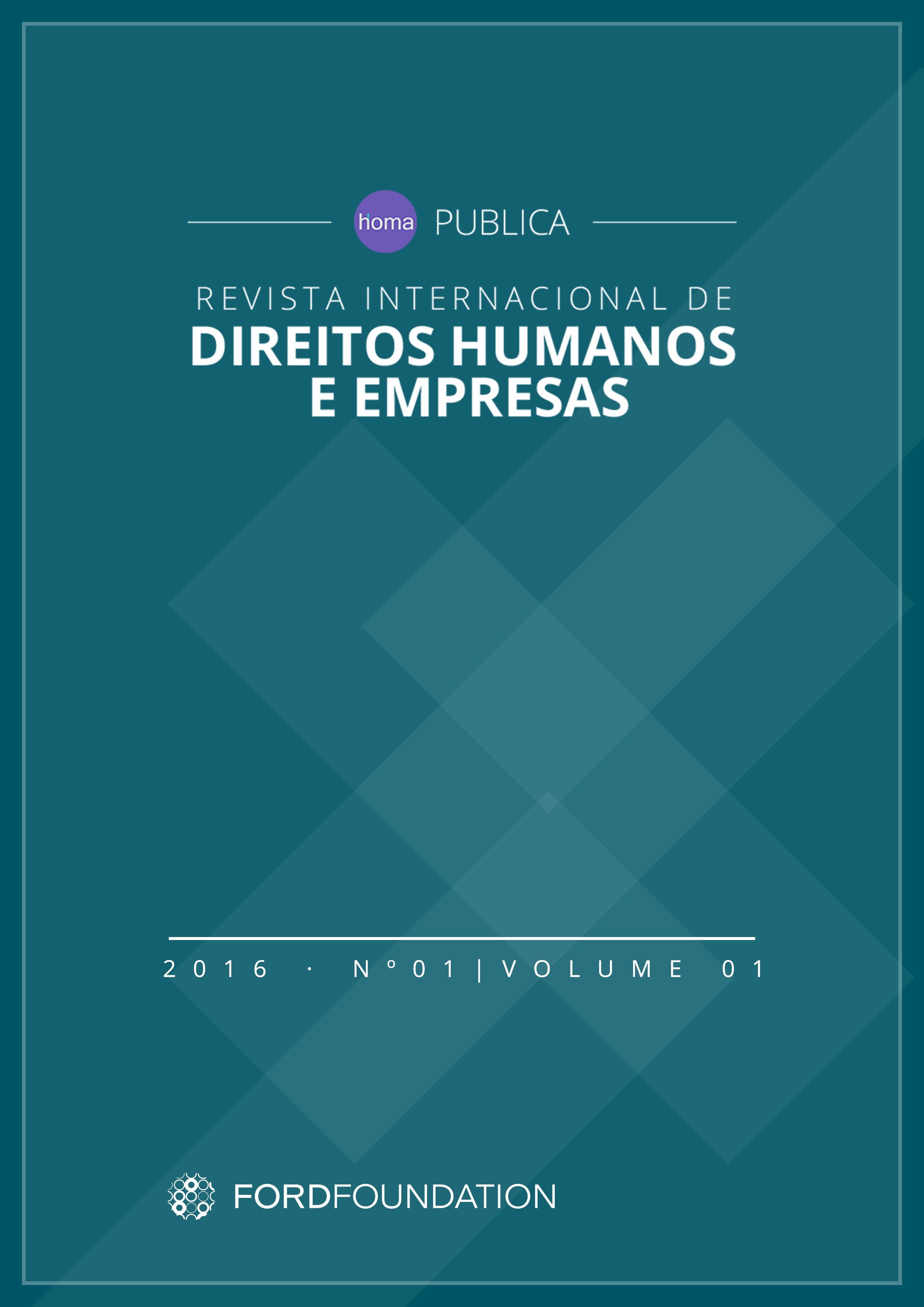Reflections on the State minority shareholding of an enterprise control block; the Fibria S/A case
Published 2016-11-30
Keywords
- Human Rights and Business,
- Public banks,
- Development
How to Cite
Abstract
The relationship between state and private sector are coming true through public investment in the internationalization of national companies, with the role of development banks in this scenario. Active in countercyclical times both in privatization phases of the economy as nationalization, public banks lend or transformed into minority shareholders in private companies control blocks in various sectors of the economy. However, the lack of transparency as to the purposes of investments and the impact of public and private interests, incites discussion on the role of the state and the adequacy of domestic laws for the treatment of such challenges. It gets worse when we observe violations of human rights of people affected by economic activities of companies in which the state participates in the shareholding control block. This article presents reflections on the subject, analyzing the power sharing model if the company Fibria Celulose S/A.
Downloads
References
- ANÁLISE DE ATO DE CONCENTRAÇÃO. Processo Administrativo: 08012.008759/2008-79 Secretaria de Acompanhamento Econômico - SEAE. 2008
- ARAGÃO, Alexandre Santos de. Empresa público-privada. Revista dos Tribunais São Paulo, vol 98, n. 890, pag. 33-68, dez 2009.
- BANCO NACIONAL DE DESENVOLVIMENTO ECONÔMICO E NACIONAL – BNDES. Estatuto do BNDES. Disponível em: http://www.bndes.gov.br/SiteBNDES/bndes/bndes_pt/Institucional/O_BNDES/A_Empresa/Empresas_Sistema_BNDES/Legislacao/estatuto_bndes.html. Acesso em julho de 2016.
- BANCO NACIONAL DE DESENVOLVIMENTO ECONÔMICO E NACIONAL – BNDES. Estatuto da BNDESPAR. Disponível em: http://www.bndes.gov.br/SiteBNDES/bndes/bndes_pt/Institucional/O_BNDES/A_Empresa/Empresas_Sistema_BNDES/Legislacao/estatuto_bndespar.html. Acesso em julho de 2016.
- EIZIRIK, Nelson. A Lei das S/A Comentada. v. 2. São Paulo: Quartier Latin, 2ª edição. 2015.
- ENGLER, Mario Pinto Junior. Estado como acionista controlador. Direito–USP. 2009.
- FISCALIZAÇÃO NO BANCO NACIONAL DE DESENVOLVIMENTO ECONÔMICO E SOCIAL – BNDES. Disponível em: http://portal.tcu.gov.br/lumis/portal/file/fileDownload.jsp?fileId=8A8182A250D20C4801511C146C4E3E7F&inline=1. Acesso em julho de 2016.
- HARVEY, David. Condição pós-moderna. Editora Loyola. 2014.
- PEDREIRA, José Luiz Bulhões e LAMY FILHO, Alfredo (Coordenadores). Direito das Companhias. Rio de Janeiro: Editora Forense. 2009.
- MARINHO, Sarah. Como são os Laços do Capitalismo brasileiro. As ferramentas jurídicas e os objetivos por participação da BNDESPAR. Direito FGV SP. 2015.
- MARQUES NETO, Florian. De Azevedo. As contratações estratégicas das estatais que competem no mercado. In OSORIO, Fabio Medina; SOUTO, Marcos Juruena Vilela. Direito Administrativo: Estudos em homenagem a Diogo de Figueiredo Moreira Neto. Rio de Janeiro, Lumen Iures, 2006.
- NOVO MERCADO / B&MF-BOVESPA. Disponível em: http://www.bmfbovespa.com.br/pt_br/listagem/acoes/segmentos-de-listagem/novo-mercado/. Acesso em Julho de 2016.
- PROCESSO ADMINSTRATIVO SANCIONADOR N. RJ2013/6635, CVM. 2013
- SANTOS, Murilo Giordan. Controle das Empresas Semiestatais. Revista de Informação Legislativa Brasilia. Ano 52, n. 208. Pag 61 - 79 Outubro/dezembro de 2015.
- SHAPIRO, Mario Gomes. Novos Parâmetros para a intervenção do Estado na Economia: persistência e dinâmica na atuação do BNDES em uma economia baseada no conhecimento. Direito - USP. 2009.

